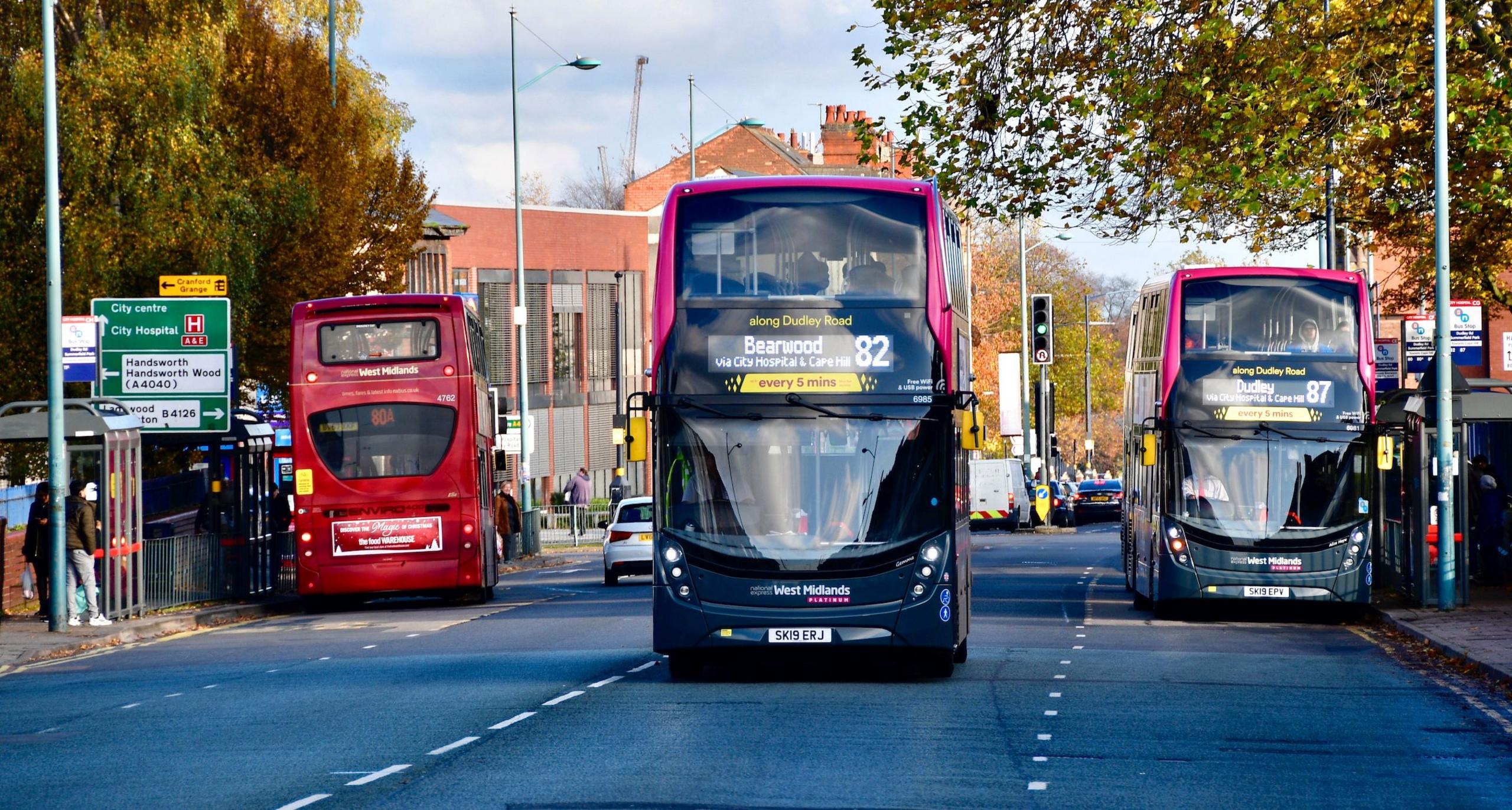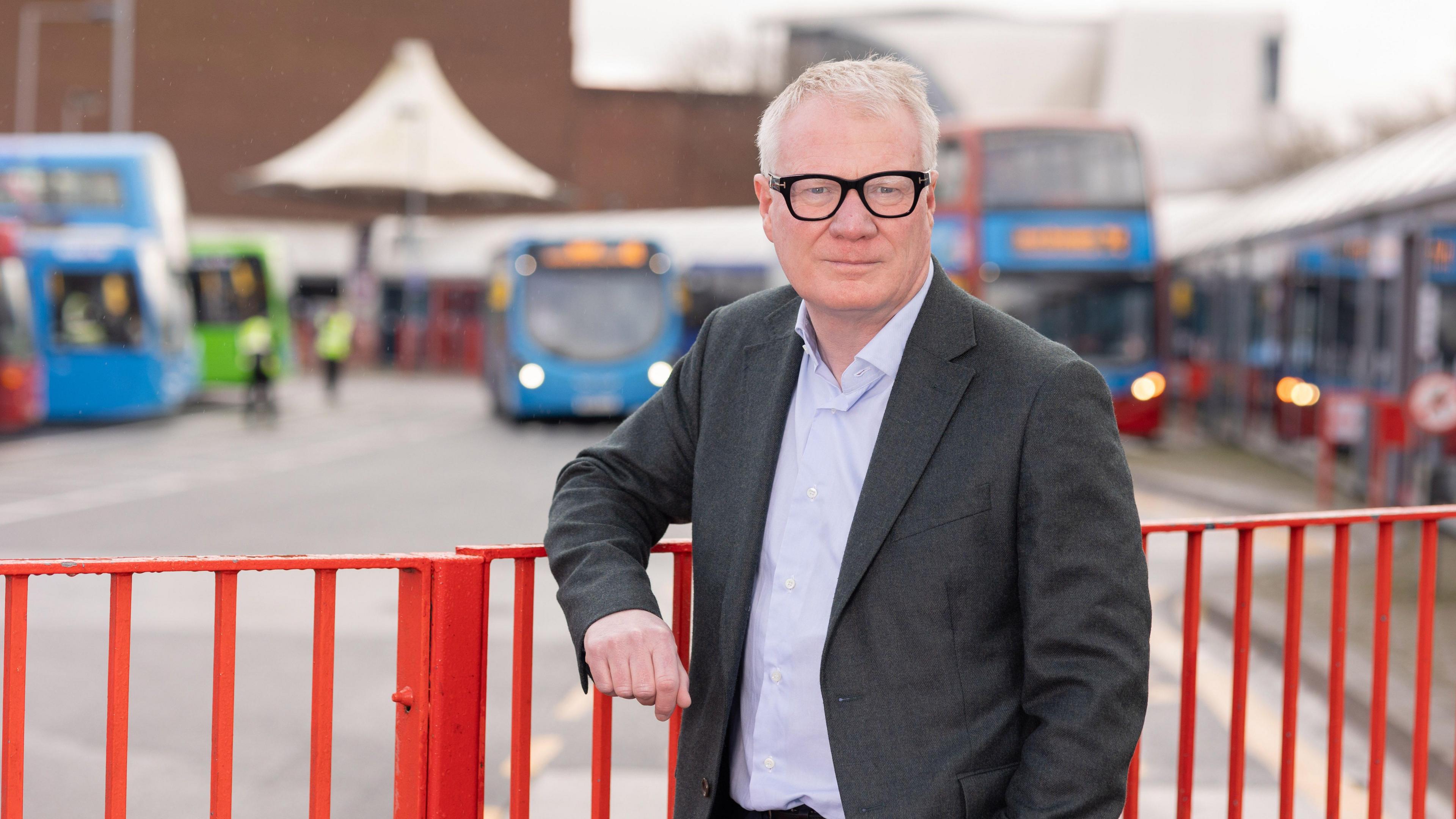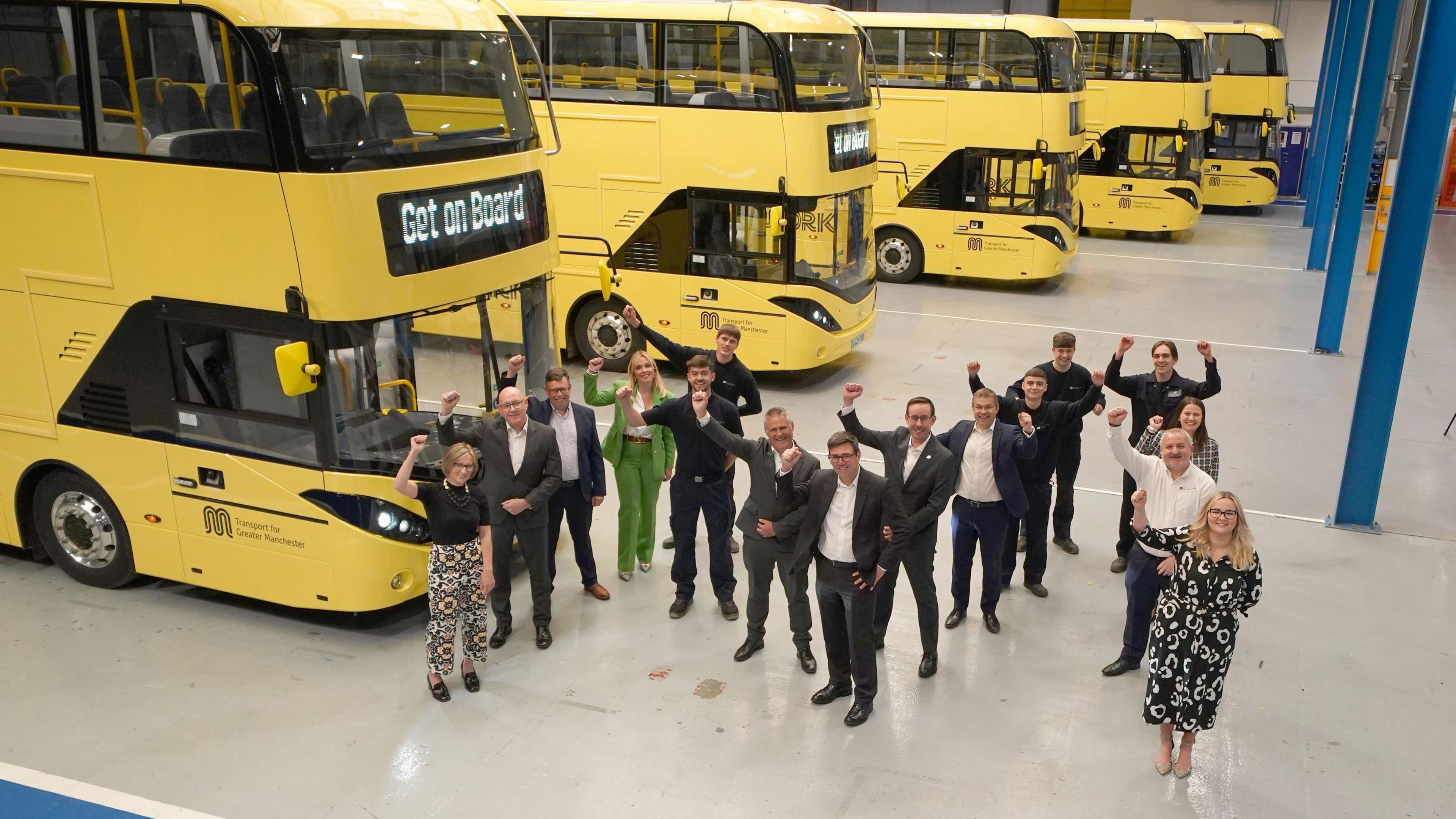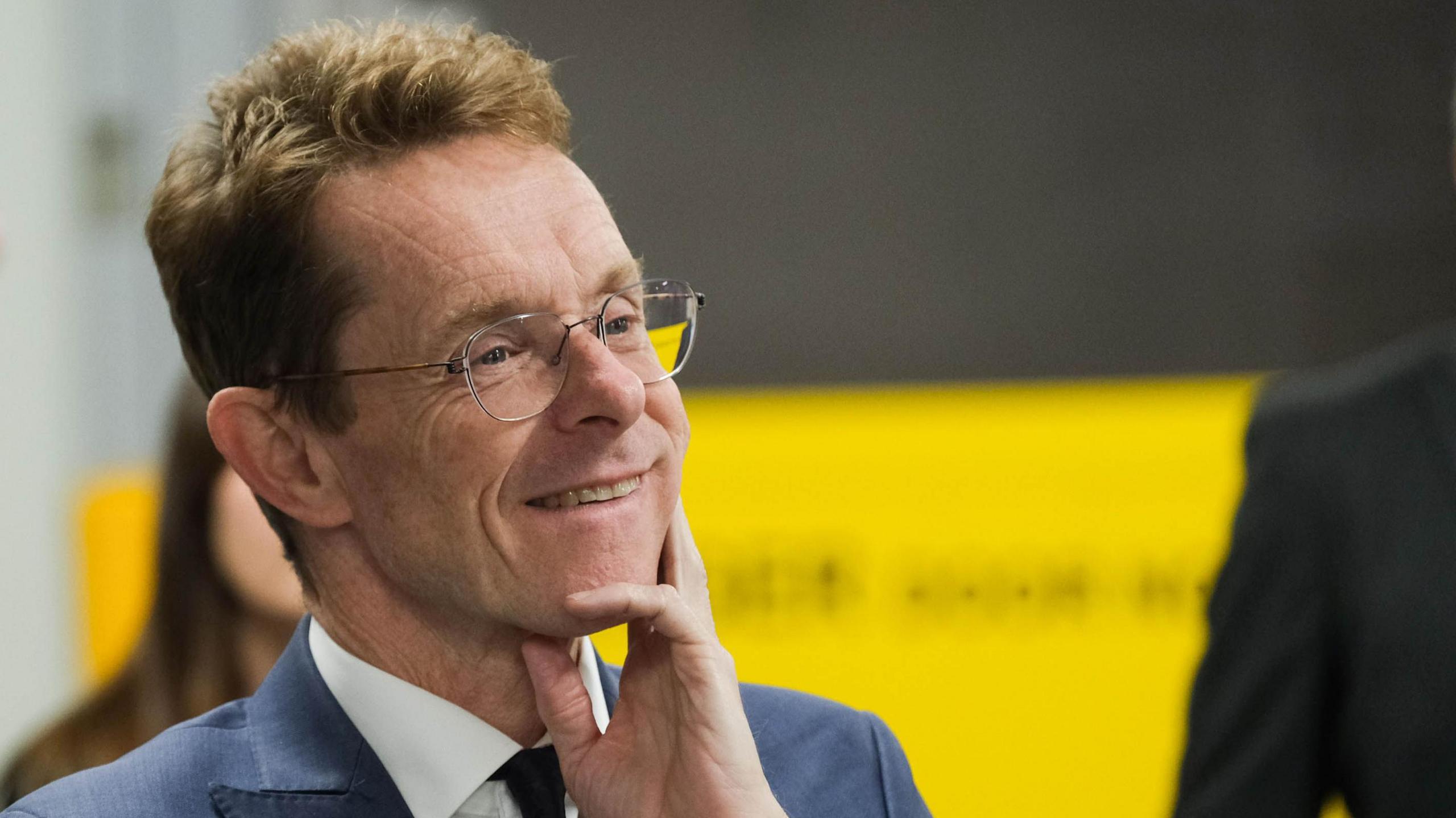Is franchising the future of buses?

The issue of who runs buses in the West Midlands is in debate ahead of the mayoral election on 2 May
- Published
It's almost four decades since bus services in the West Midlands were deregulated, with control handed from local government to private companies.
But as the mayoral election campaign heats up it has accelerated discussions on who should run buses in the region.
Labour candidate Richard Parker has said he would return buses to public control, if he is elected on 2 May.
The former partner at accounting and consultancy firm, PwC, explained he would oversee the franchising of bus services.
Private providers would continue to own and run buses. But routes, timetable, prices and standards would be decided upon by the West Midlands Combined Authority (WMCA), which the elected mayor leads.
Mr Parker says: "The only way to ensure buses are cheap, reliable and serve every single corner of our region is to take control.
“It’s not right that the profits being made are going into the pockets of these bus companies, when they should be reinvested in services. We must improve services, that’s what I’ll be doing if I’m elected in May. "
He suggests improving bus services in this way will increase capacity on the region's tram and rail networks and reduce traffic on the roads.

Labour's mayoral candidate, Richard Parker
The debate comes after bus services in England were deregulated by then Prime Minister Margaret Thatcher, in 1986.
It meant the buses were removed from local authority control, allowing private operators to work with greater autonomy.
The WMCA currently runs what it describes as an "enhanced partnership", whereby the private bus companies must adhere to some binding commitments.
The power to franchise out bus services has actually been in the hands of metropolitan mayors since the Bus Services Act in 2017.
Such a change would see private bus providers effectively bidding to be chosen by a local authority to deliver a service.
In practice the bus companies own the vehicles, but the routes, timetable and prices are decided by a local government authority.
The largest working example is Greater Manchester, where the Labour Mayor, Andy Burnham, is leading an ongoing franchising process. West Yorkshire is due to follow soon.

Mayor for Greater Manchester, Andy Burnham, with a fleet of new buses
The current West Midlands mayor, Andy Street, has been in post since 2017 and has to date not chosen to use this power.
The Conservative told the BBC he is waiting for the outcome of a review, due to be published in July and commissioned by the WMCA, to assess the financial implications of introducing franchising.
"Whoever is mayor will be able to judge that. I'm keeping an open mind," Mr Street said.
He continued to highlight the cost of franchising, citing Manchester which has spent £143m on the process.
"We have, compared to Manchester, a good performing network and the lowest fares in the country," Mr Street continued.
"It's too easy to say public control solves all the problems with the sustainability of buses."

Andy Street has been the West Midlands Mayor since 2017
The West Midlands mayor represents 2.8 million people across Birmingham, Coventry, Dudley, Sandwell, Solihull, Walsall and Wolverhampton.
Voters living in those seven council areas will vote on 2 May to elect the next mayor.
Siobhan Harper-Nunes, the Green Party candidate, told the BBC: "Clean green efficient transport system is central to my campaign.
"If I were mayor, I’d definitely want the WMCA to regulate transport and would immediately establish a working group to consider options such as franchising or de-privatisation."
Liberal Democrat candidate Sunny Virk also said he would introduce franchising.
"[This would be] principally to enable bus services to meet the needs of Midlanders, and cap fares at £2, " he said.
"There has been a failure by Conservatives when franchises and operators in the Midlands are permitted to charge more than London."
'Build on positive steps'
Elaine Williams, who is standing for Reform UK said the WMCA currently has no track record "of dealing with public services efficiently".
"Many people don't know it exists, even more people don't know how it is structured or what it actually does," she said.
"How is Richard Parker going to address a project integrating routes, charges and standards for fleets of buses owned by multiple different companies?
"In the first instance, all the root causes need to be looked at to find workable solutions in partnership with the bus companies."
One of the largest bus providers in the region is National Express West Midlands.
A spokesperson told the BBC: "We are pleased to see candidates talking about the importance of buses to our transport network. We know that our bus services are vital lifelines for communities."
The company wouldn't comment on franchising proposals.
"Our priority is to continue to build on the positive steps we are taking to deliver a great public transport service for our customers," the spokesperson added.
You can see more on this story on Politics Midlands, BBC One at 10am, or on the BBC iPlayer.